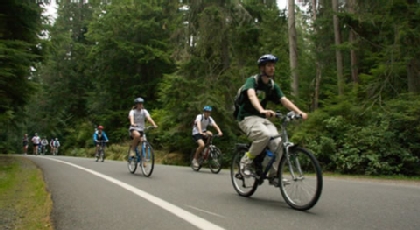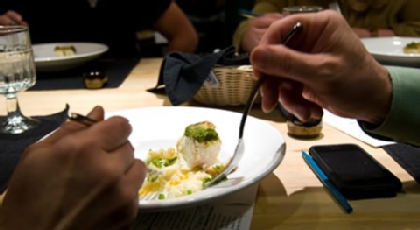Page 120 • (1,343 results in 0.057 seconds)
-

that are worth your money. There are many masters programs out there, but not all are created equal.Learn more about the MSK programAttend an information session to see if the MSK program is right for you. Information Session Read Previous Welcoming First Cohort: Kyle Drugge Read Next Welcoming First Cohort: Kallan Campa LATEST POSTS 4 Reasons to Choose PLU’s Master of Science in Kinesiology September 26, 2022 First MSK Graduate Class: Matt Leslie November 19, 2021 First MSK Graduate Class
-

Lutheran University’s Doctor of Nursing PracticePacific Lutheran University’s Doctor of Nursing Practice prepares students to develop and evaluate quality care within a health system, collaborate with interprofessional teams to improve health outcomes, and be leaders in the nursing profession. Our DNP program prepares nurses at the highest level of proficiency as they learn to translate science into clinical practice. Students develop the skills to lead collaboratively, integrate research into care
-
recycle until he came to PLU, but now he’s passionate about protecting the environment and sharing his knowledge with others. The geosciences and chemistry major plans to teach high school science. Under the guidance of Claire Todd, visiting assistant professor of geosciences and environmental studies, those in the program have spent a large portion of J-Term reviewing the evidence for recent climate change. They have been reviewing data collected by the Intergovernmental Panel on Climate Change (IPCC
-
February 21, 2008 Dealing in historical coins is rare gift Todd Imhof ’86 wasn’t planning a career in rare coin dealing when he left PLU with a degree in political science. In fact, he was leaving for New York to work in the banking business at Chase. Then a friend from high school pulled him aside and told him about a business idea to sell rare coins. Imhof jumped in, begging off Wall Street and opening Hertzberg Rare Coins in Tacoma. “I found myself intrigued by both the coins and the
-
. Saturday, Oct. 4, at the Museum of Science and Industry in Seattle, MediaLab will premiere the documentary “Illicit Exchanges: Canada, the U.S., and Crime.” The ambitious hour-long film – MediaLab’s second in as many years – looks at how drugs and weapons affect the citizens of the two nations. “For us, this is a film about community as much as it is about the drug trade,” said Julie Olds ’09, the lead researcher on the project. “ We want to ask ‘how responsible are we?’” The project had its genesis
-
December 1, 2008 Students talk trash in recycling class It was all trash talk last month in Claire Todd’s natural resources class. In two rounds of classes last month, Todd, a visiting assistant geosciences professor, had her students sort through a mound of trash laid out on the table in the Rieke Science Center. Generally, the pile represented about six hours of trash that had been collected at the center that day. In this case, Nov. 17 and 19.The students’ mission: sort the trash, talk about
-
degree of hypothermia, but I loved every moment of that historic day. Morgan Root is a senior at PLU. She is a communication major with an emphasis in journalism and a minor in political science. The photos were also provided by Root. Read Previous Explore! offers first year students a chance to bond. Read Next Diplomat explores Jewish-German relations COMMENTS*Note: All comments are moderated If the comments don't appear for you, you might have ad blocker enabled or are currently browsing in a
-
homes where the next meal and the next paycheck is always an uncertainty. Each morning, Pfaff, 22, gets up at 6 am and is in the classroom by 7 am. He lets his students eat in class to make sure they have breakfast and then they get to work. Pfaff teaches everything, from math, to science to English. After school, he works on papers and talks to students. He usually leaves about 4:30 pm. Then repeats this the next day, and the next. The local newspaper interviewed Pfaff just before the first day of
-

use public transportation). There are a lot of great benefits.” Many departments and organizations around campus were involved in planning for OTR. Faculty members were given the opportunity to provide input into possible trips that they would find interesting. Deane said that the chocolate factory tour scheduled this year was a new idea presented by a geo science professor. Other department contributions included the Volunteer Center, Campus Ministry and faculty members from all over campus
-

participants with extensive knowledge about sustainable food production and development. Some of the keynote speakers include Managing Director for Bread for the World Jim McDonald and David Creech, Director for Hunger Education for the ELCA. PLU professors Kevin O’Brien and Brian Naasz, from the religion and chemistry departments, will give workshops related to biodiversity and science. Another primary keynote speaker is Casson Trenor, a chef and author of the book “Sustainable Sushi: A Guide to Saving
Do you have any feedback for us? If so, feel free to use our Feedback Form.


